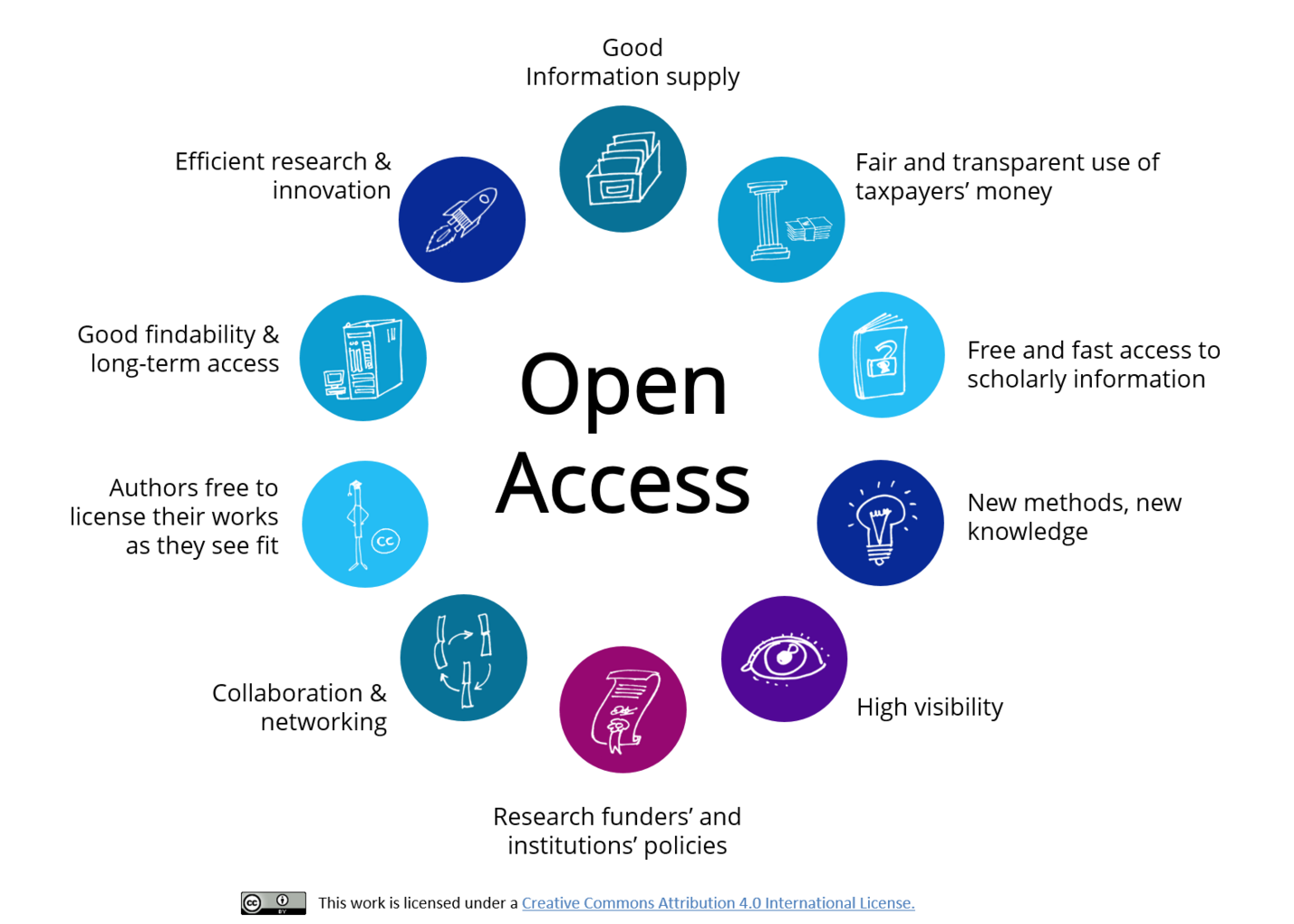
Open Access in Linguistics
The topic of Open Access has been receiving increasing amounts of attention in linguistics since around 2012. Two particularly significant events that played a role in this were the founding of Language Science Press by German linguists Stefan Müller and Martin Haspelmath in 2014 and the emergence of the journal Glossa, catalysed by a conflict between the editorial board of the journal Lingua and its publisher Elsevier, in 2016. The eLanguage platform of the Linguistic Society of America, founded in 2006 by Stephen R. Anderson and Dieter Stein, is an important precursor to these two initiatives. Unfortunately, this platform is no longer active, though several journals which used to be part of eLanguage – such as Semantics & Pragmatics, Dialogue & Discourse and Journal of Historical Syntax – continue to enjoy a flourishing existence.
All three of these are scholar-led initiatives. Established publishers are reacting to these developments, slowly but inexorably. Since 2017, Zeitschrift für Sprachwissenschaft – the journal of the German Linguistic Society (DGfS) – has also transitioned to full Open Access.
Open Access Journals
Under the keyword Linguistics, the Directory of Open Access Journals (DOAJ) counts 874 indexed journals (as of March 2024). Most of these are free both for authors and readers, i.e. they are so-called diamond Open Access journals. A further list of open access journals in linguistics can be found at the oaling blog.
Important Open Access journals include:
- Glossa DOAJ
- Semantics & Pragmatics DOAJ
- Linguistik Online DOAJ
- Zeitschrift für Sprachwissenschaft DOAJ
- Biolinguistics DOAJ
- Open Linguistics DOAJ
- Dialogue & Discourse DOAJ
- Journal of Historical Syntax DOAJ
- SKY Journal of Linguistics
There are also many smaller journals dedicated to the linguistic investigation of particular languages or language families, such as Studies in African Linguistics, Finno-Ugric Languages and Linguistics, and Indo-European Linguistics.

Open Access Books
Under the keyword Linguistics, the Directory of Open Access Books (DOAB) lists 3,676 titles, and a search for Linguistics at OAPEN yields 14,201 titles (both as of March 2024).
The key player in the landscape of open access books in linguistics is Language Science Press, a new publisher whose costs are borne primarily by a consortium of university libraries. This enables them to avoid charging Book Processing Charges (BPCs) entirely. However, in addition, virtually all presses who regularly publish linguistics books now offer the opportunity to publish Open Access upon payment of a BPC.
It is increasingly common for monographs and edited volumes to appear in Open Access form. As regards handbooks, MIT Press have recently started to publish a series of Open Handbooks in Linguistics. Open Access textbooks, too, are becoming increasingly common.
Disciplinary Repositories
The most important repositories in linguistics include LingBuzz (for general linguistics) and semanticsarchive.net (semantics and pragmatics). Depending on authors’ disciplinary identities, linguistics papers can sometimes also be found at Humanities Commons (CORE) or arXiv.org. The Open Directory of Open Access Repositories (OpenDOAR) also provides an overview of relevant repositories.
Video about Self-Archiving Rights
Practical Tip
Finding Open Access Literature (in German)
Other Offerings
The oaling blog contains a list of Open Access journals as well as a roundup of developments in the area of Open Access in linguistics.
LingOA (Linguistics in Open Access) functions as an umbrella organisation for Open Access journals; its aim is to transform established paywalled journals into Open Access.
Open Access book reviews are regularly published on Linguist List.
The online archives JSTOR and Project MUSE now also provide open access content relevant to linguistics.
Open Science in Linguistics
Linguistic research data and code can be deposited at the Tromsø Repository of Language and Linguistics (TROLLing).
Access to text and language corpora plays a significant role in linguistics - especially in corpus and computational linguistics. The dominant way in which corpora are provided is to set up a web-based query option (either freely accessible, usable free of charge after registration, or not freely accessible). This makes optimal use of the structure and annotation of the corpora, and requires neither download nor software installation. However, as a rule, the corpora and tools themselves cannot be downloaded and reused for further dissemination or analysis. This is often due to copyright reasons.
Examples include the COSMAS corpora of the IDS (Institute for the German Language) in Mannheim, Varitext (French, University of Cologne), and the DWDS (Digital Dictionary of the German Language), where a core corpus (Kerncorpus) can be freely downloaded. By contrast, LAUDATIO (Humboldt Universität Berlin), which focuses on corpora of historical language stages, practises an OA model. The European initiative LRE Map covers a large number of linguistic resources (data, tools, guidelines). In linguistics, the Open Source idea plays an increasingly important role insofar as some tools are offered under open licences, and the standardisation and interoperability of data are taken into account.

Further Reading
- Haspelmath, M. (2013). Why open-access publication should be nonprofit—a view from the field of theoretical language science. Frontiers in Behavioral Neuroscience, 7(57). https://doi.org/10.3389/fnbeh.2013.00057
- Kleineberg, M., & Kaden, B. (2017). Open Humanities? ExpertInnenmeinungen über Open Access in den Geisteswissenschaften. LIBREAS. Library Ideas, 32. https://libreas.eu/ausgabe32/kleineberg/
- Müller, S. (2012). A Personal Note on Open Access in Linguistics. Journal of Language Modelling, 0(1), 9–39. https://doi.org/10.15398/jlm.v0i1.52
Content editors of this page: Prof. Dr. George Walkden (Universität Konstanz) and Prof. Dr. Christof Schöch (Universität Trier) (Last updated: December 2021)